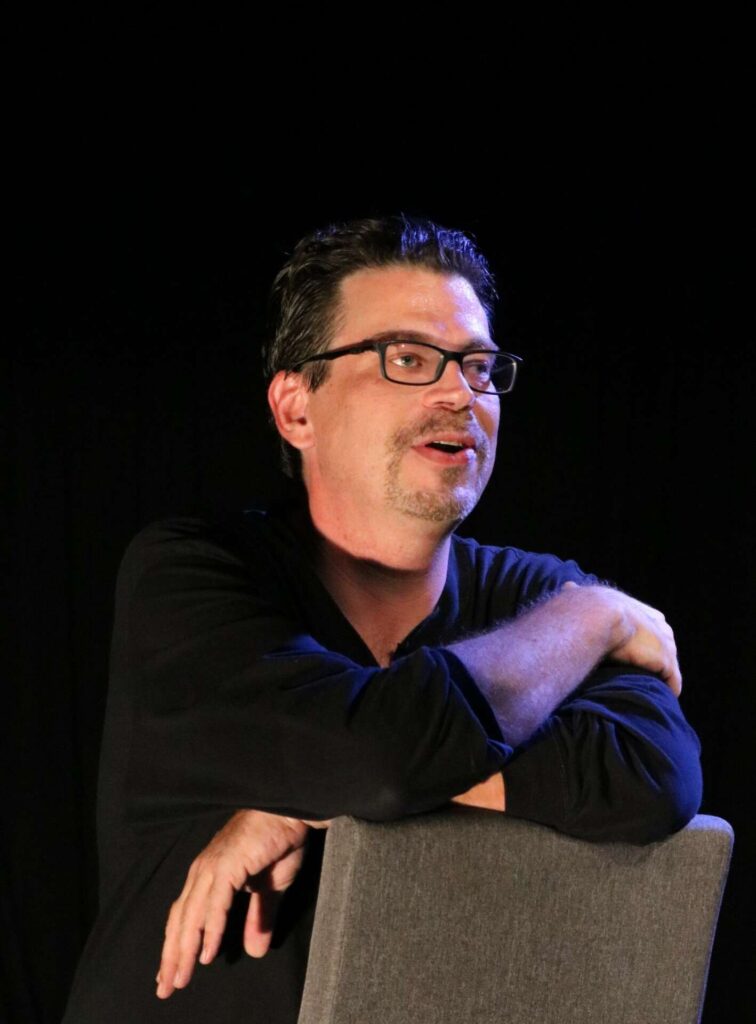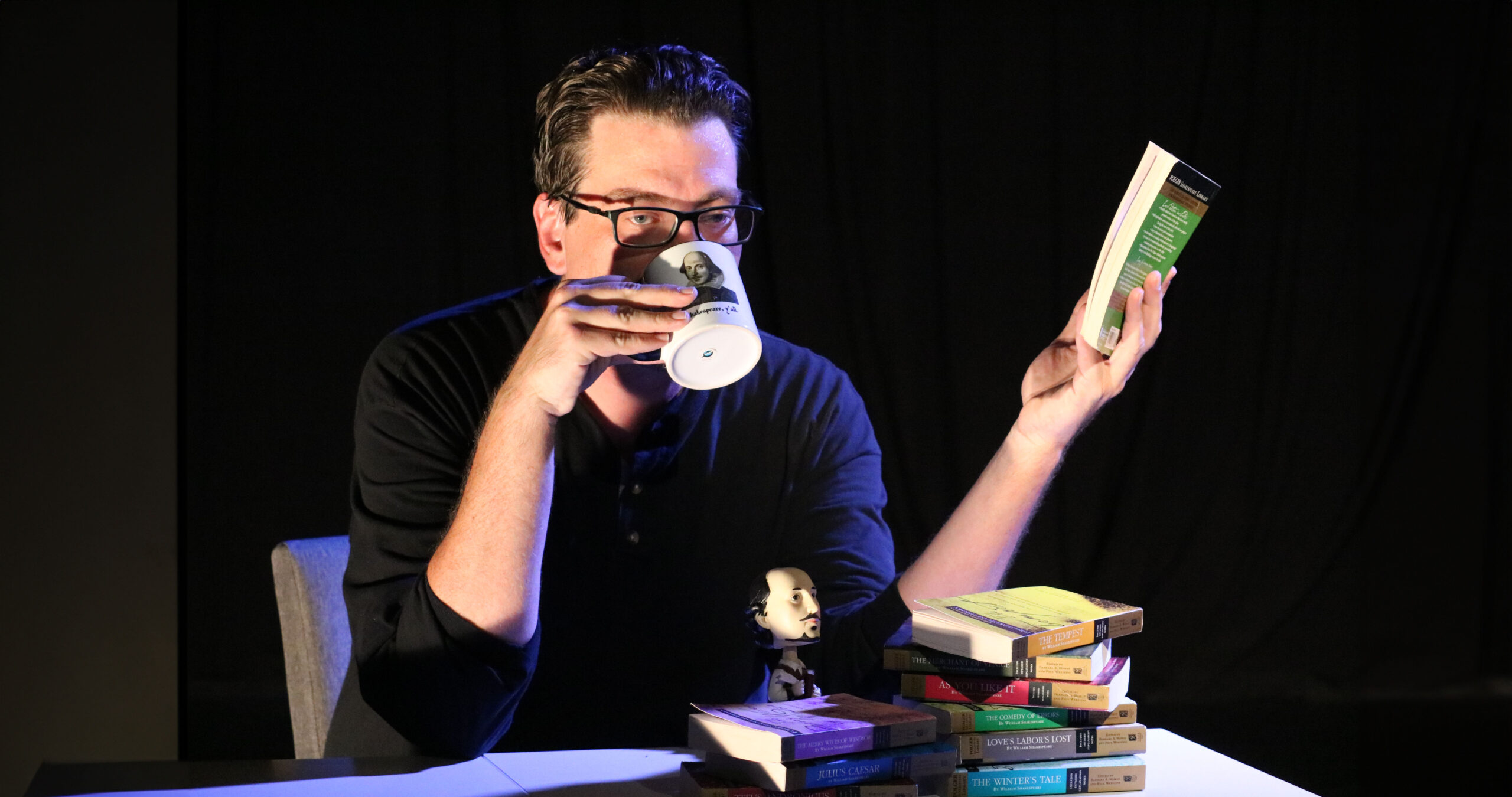“Any room I’m in, if Shakespeare comes up, the students all crane their necks around to see my expression,” said Creative Writing faculty Glenn Schudel. “I am that guy.”
Though his Creative Writing courses don’t focus on Shakespeare, Schudel likes to sprinkle his lessons—and his conversations—with insights, techniques, and even trivia from the Bard and from theater in general. He’s especially keen on classical rhetoric, citing examples of various rhetorical techniques used by Shakespeare’s characters.
Schudel’s theatrical roots go back to his childhood in Arcadia, when his family would come to Sarasota (“the big city,” as he thought of it then) to see performances. His first job after undergrad was as an assistant stage manager with Sarasota’s Asolo Repertory Theatre.
His ambitions took him to Chicago and New York before he finally decided to pursue a graduate degree at Mary Baldwin University, where he studied Shakespeare and performance. He dove into rhetorical studies and also took several classes on dramaturgy. For his M.Litt thesis, he went through Shakespeare’s plays character by character, examining the types of rhetoric they each used. It was 200 pages typed.
“I always liked Shakespeare. I was a nerd growing up,” said Schudel. “But this was a really wild experience for me, where I learned to love the works of Shakespeare more by taking them down off the pedestal. They’re all deeply weird and funny and horny and strange.”
After grad school, Schudel worked for three years as the tour manager for the American Shakespeare Center, touring three shows and 19 educational workshops up and down the eastern half of the U.S. By the end, he was being asked to edit the plays as well, providing trimmed versions of the texts to be performed.

Then he took an adjunct teaching gig at Randolph College. “That gave me the bug,” he remembered. “I realized I really like teaching at the college level.”
He began teaching at Ringling College in 2018 and joined the faculty in 2023. While he didn’t ever think he’d be teaching Creative Writing, he now recognizes how much of his theater background can be helpful to his students.
“This is not new advice for me, but a lot of writing teachers will tell you that you should read your writing out loud. You can hear the flow and rhythm and sounds,” he explained. And generating your own fictional characters is not unlike how actors figure out how to perform a part.
“The stuff I learned in my acting classes in college, I was having my students do that kind of work in my writing classes,” he said. “So then, every class, I would pull out one acting exercise. It’s shocking how much writing and theater have in common.”
And at Ringling College, he often sees his enthusiasm reflected back at him. “It’s been such a pleasure working here where all of the students are studying something that they love,” he said. “I’ve never taught a class here that was labor. It’s always fun. [The students] are so weird and smart and clever and artsy.
Sign up for our newsletter to get the latest Ringling College news in your inbox.
Contact:
Office of Marketing and Communications
communications@ringling.edu
941-309-4008



